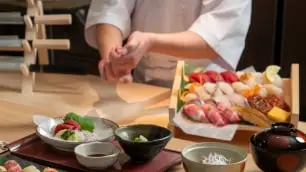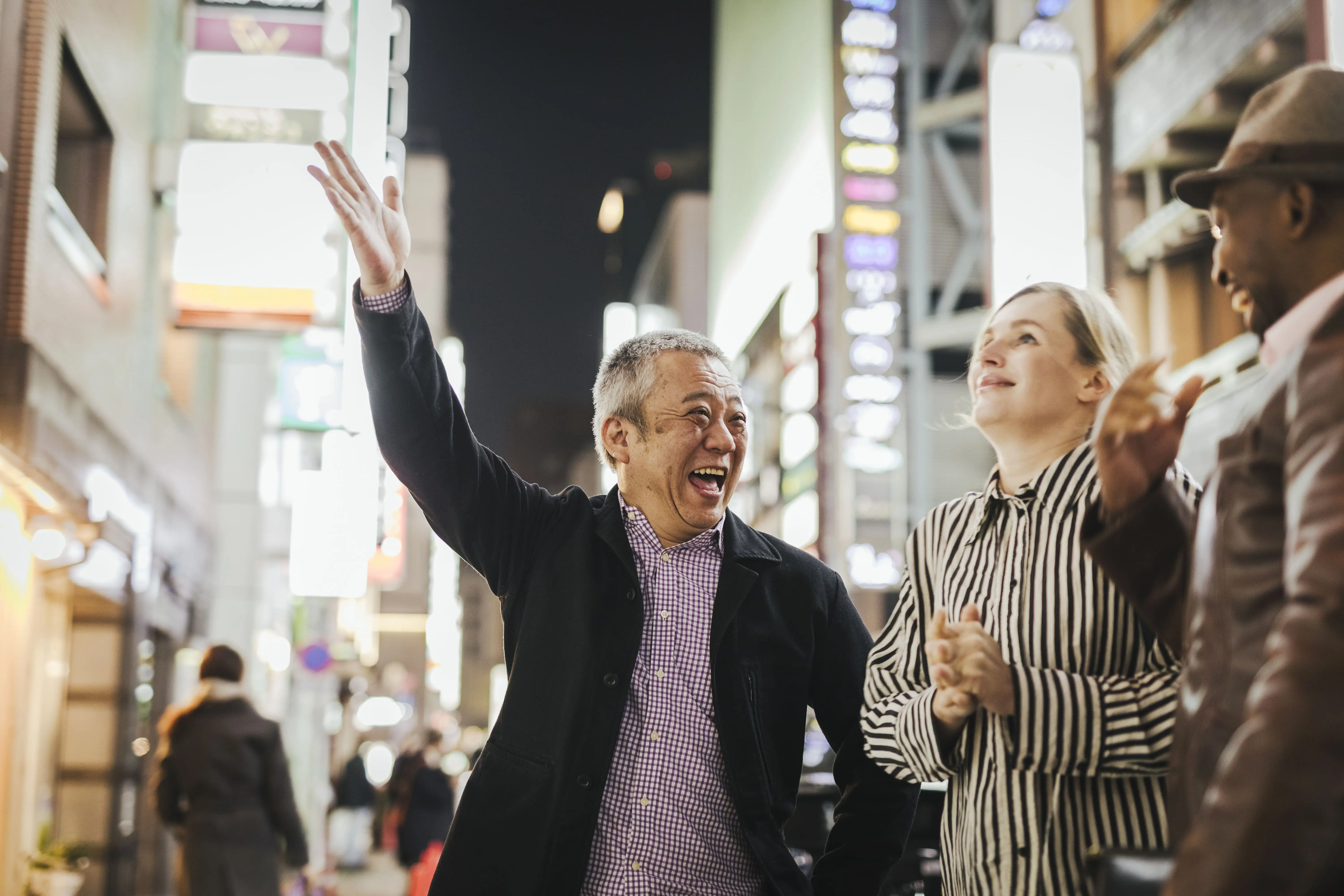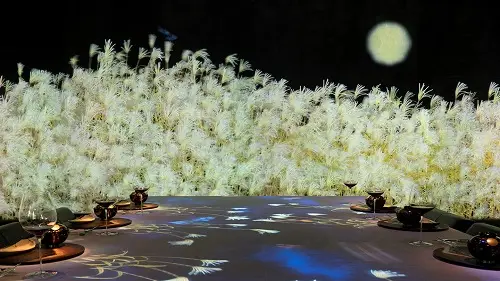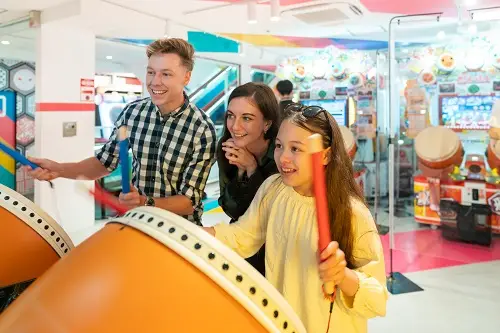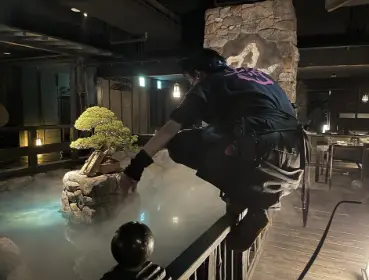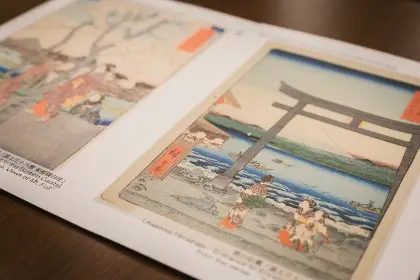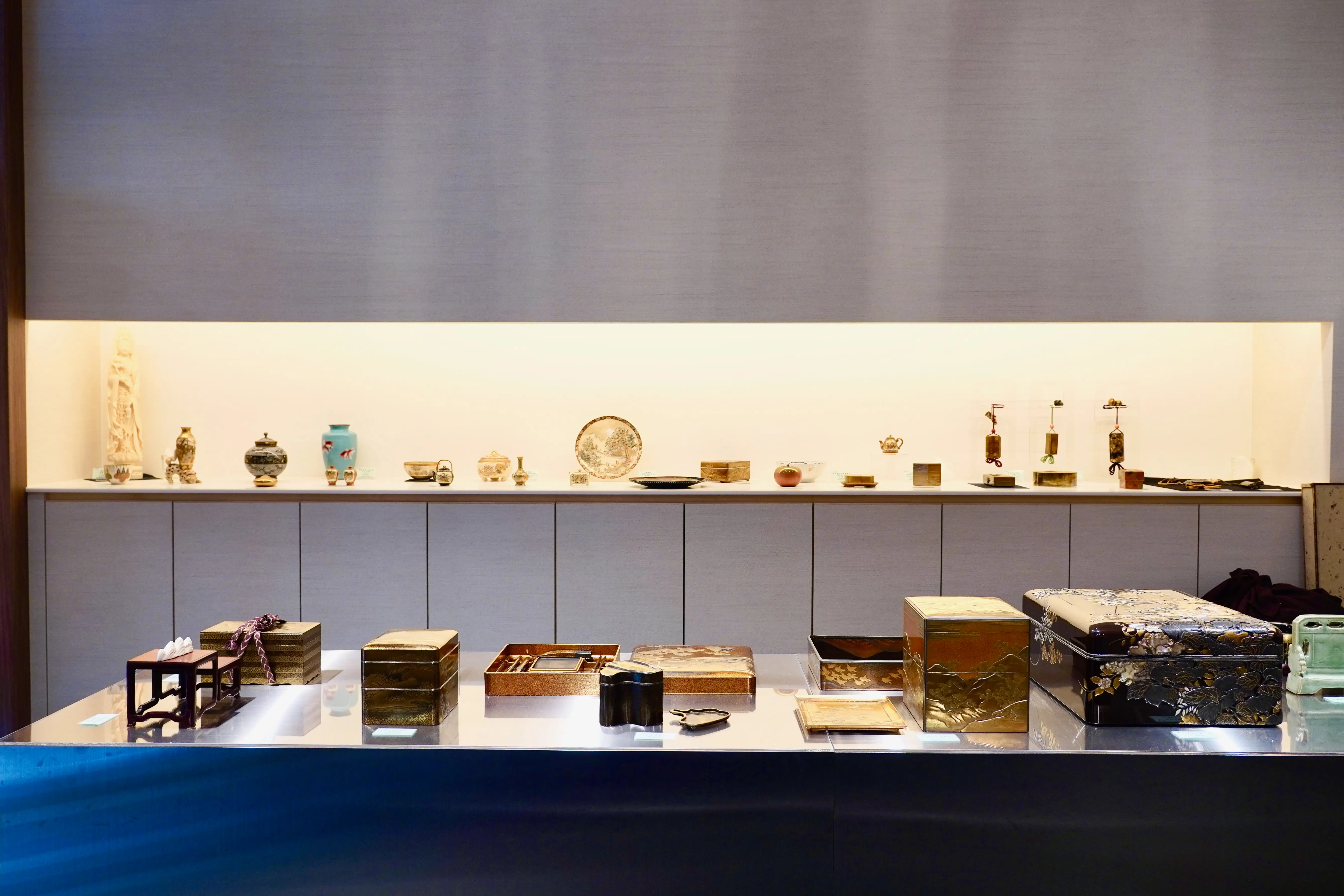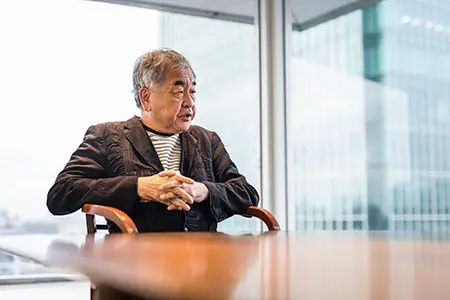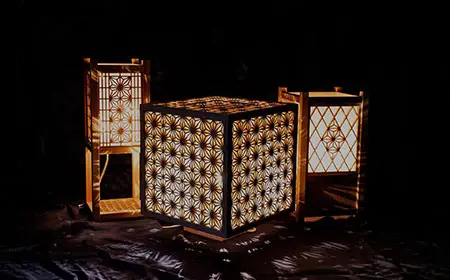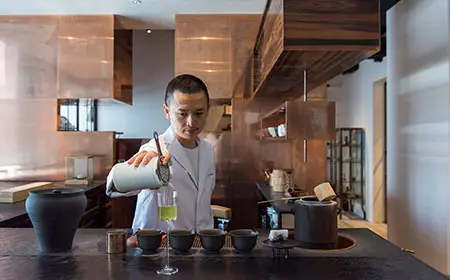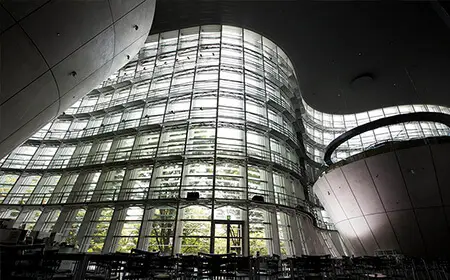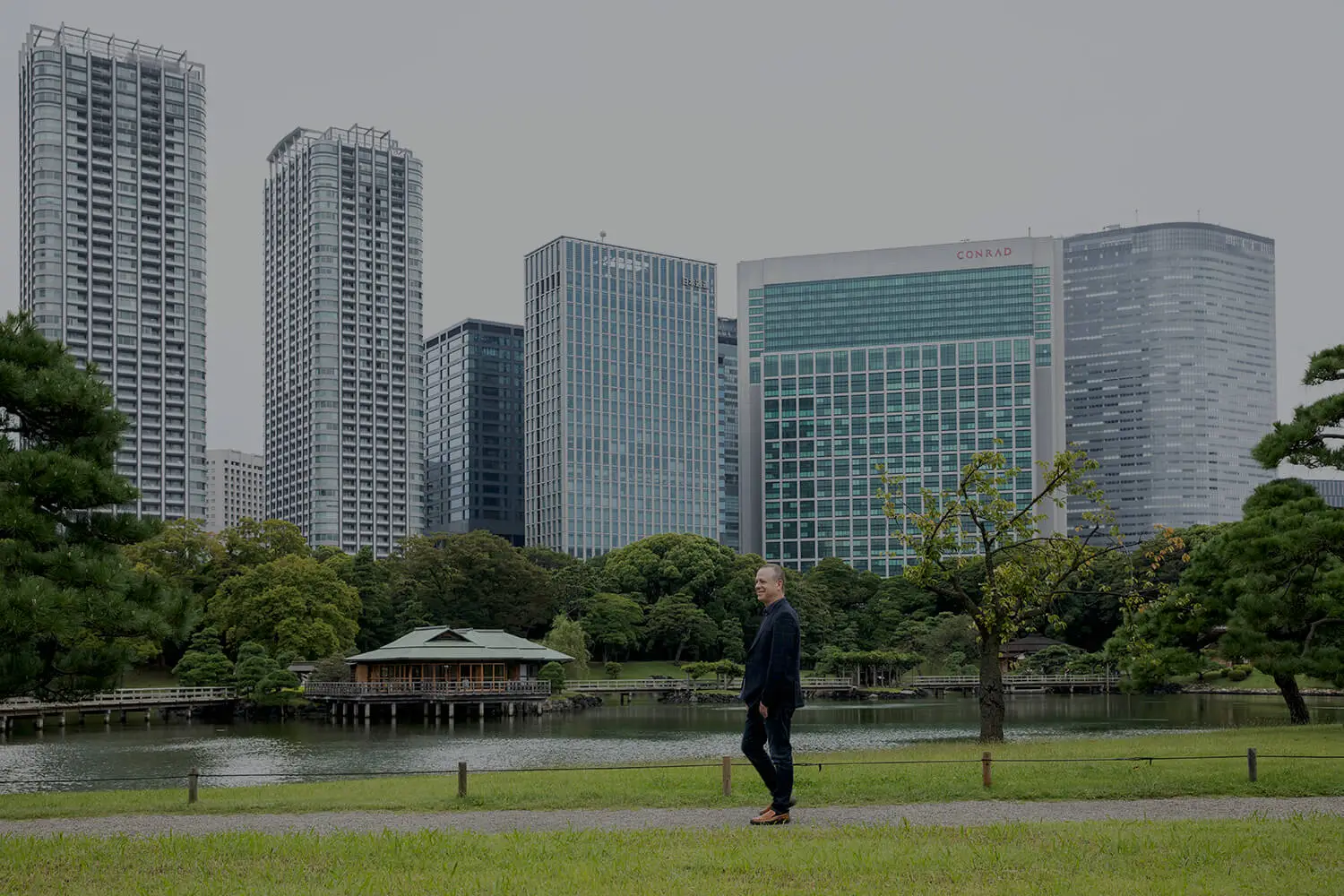
TOKYO’S GLOBAL APPEAL
We asked Japan travel specialist Scott Gilman to share his view of Tokyo. Just what is it that makes this destination so appealing?

- Scott Gilman
Scott Gilman Managing Partner and Co-Founder of JapanQuest Journeys (JQJ), specializing in bespoke luxury journeys to Japan, Gilman is a Japan buff and former Tokyo resident now living in Washington, D.C. His profound love of Japan led him to cofound JQJ in 2010, now supporting hundreds of travelers to Japan yearly. A repeat selectee of the Travel+Leisure A-list, Condé Nast's Top Travel Specialists, and the Wendy Perrin WOW List, Gilman is recognized worldwide as a leading tour operator.
HAMA-RIKYU GARDENS (Shiodome)
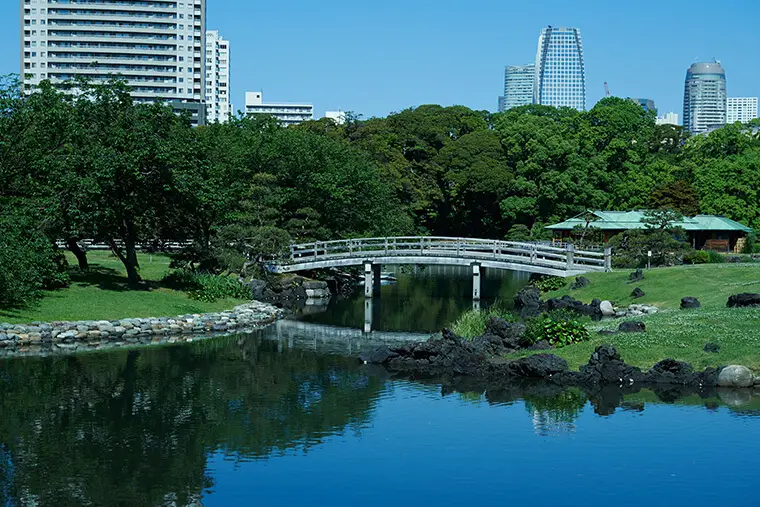
HAMA-RIKYU GARDENS
MEIJI JINGU SHRINE / OMOTESANDO AREA

Meiji Jingu Shrine
ROPPONGI / AZABU-JUBAN AREA
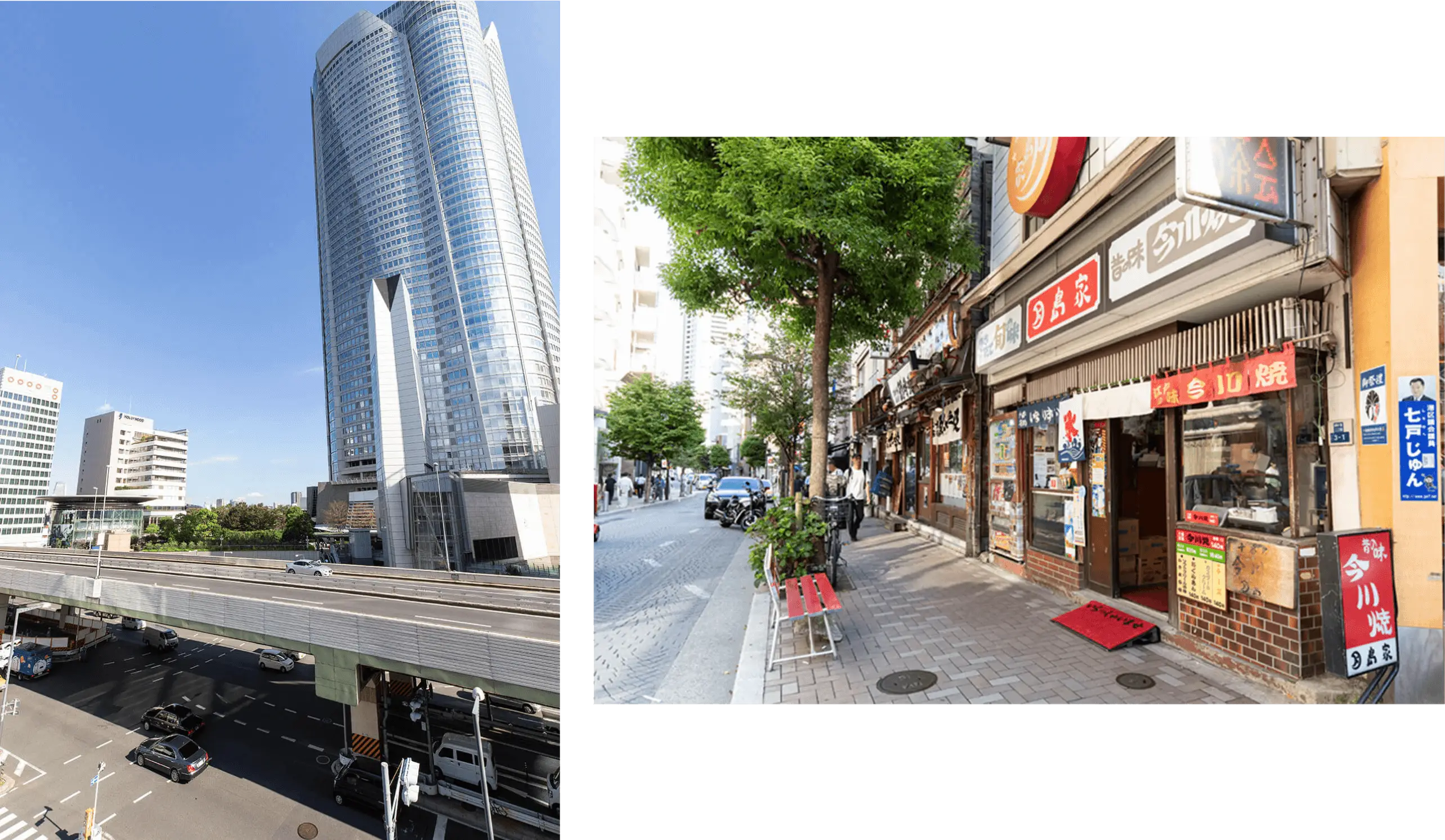
If the Roppongi Hills and Tokyo Midtown complexes are symbols of the new Tokyo, nearby Azabu-Juban represents the old city. Stores and restaurants line narrow shopping streets, and the mouthwatering aroma of charcoal-grilled yakitori floats in the air. Both facets of the city's identity coexist in the area, yet another classic Tokyo juxtaposition.






